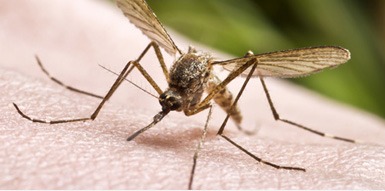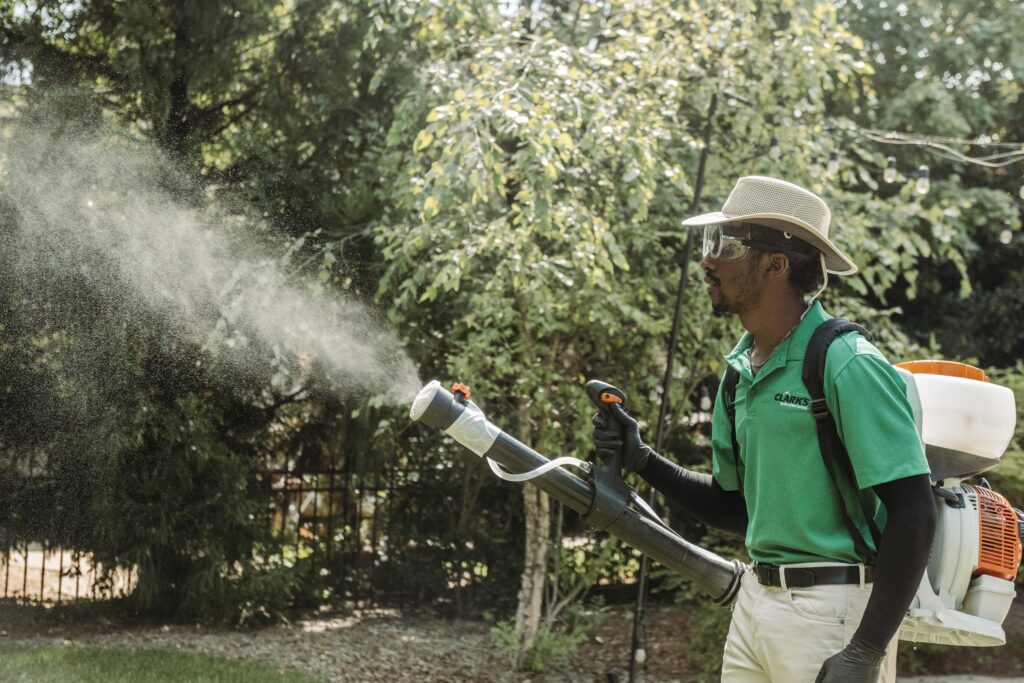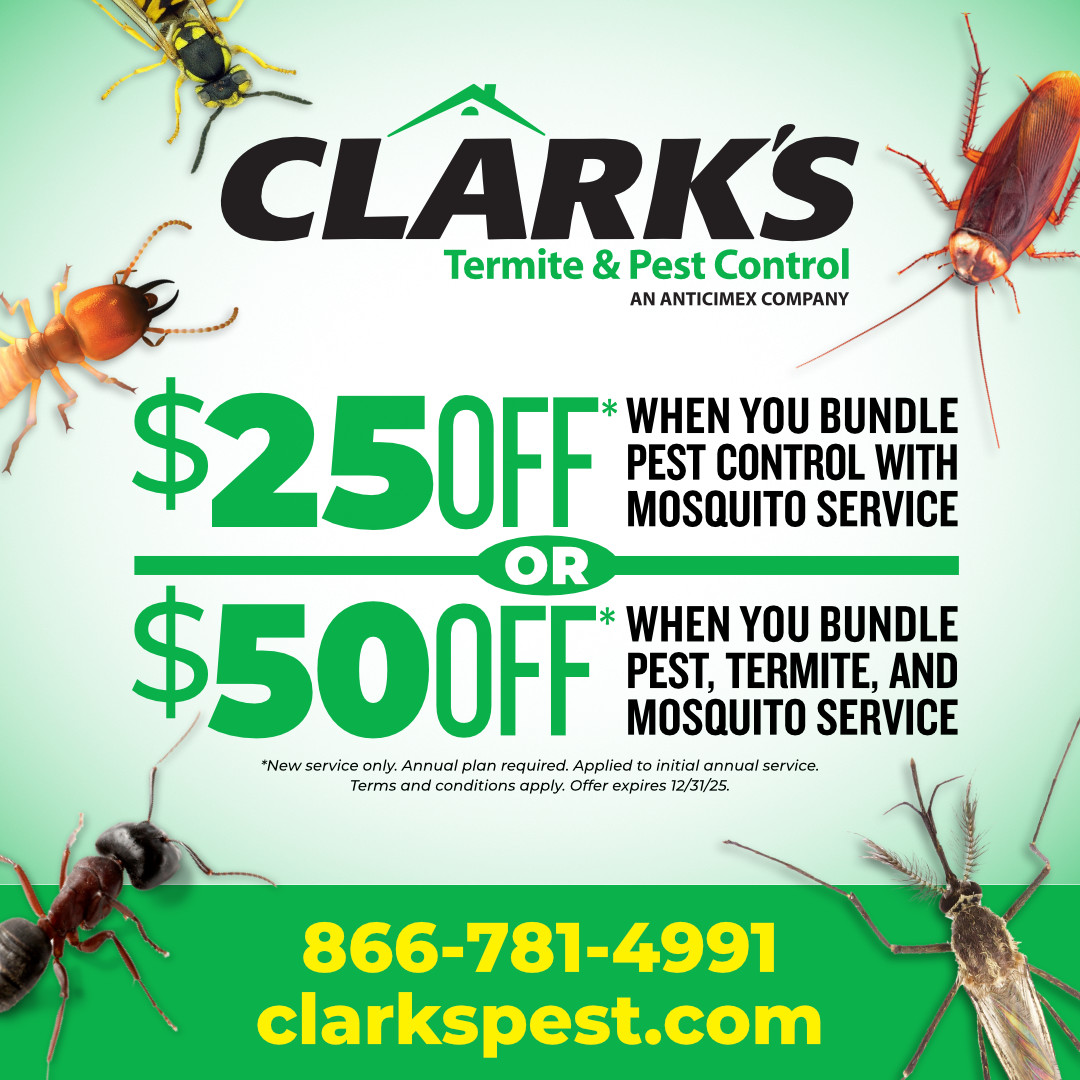How to Control and Prevent Mosquitoes in the Carolinas
If you live in or near the Carolinas, you don’t need to be told that you live in an absolutely wonderful place. North Carolina, South Carolina, and the surrounding areas are characterized by old-fashioned Southern charm, rich cultural traditions, and beautiful weather.
In fact, the area’s stunning natural beauty and gorgeous weather make the Carolinas great places to maintain equally beautiful yards, gardens, and outdoor spaces. But the same conditions that make your property a terrific place for you to spend time also attract numerous mosquitoes.
A reliable mosquito control strategy is a must for keeping your space enjoyable and your family healthy, but it’s important to choose a solution you can trust to get the job done efficiently and safely.
At Clark’s Pest Control, we specialize in Carolina-area mosquito treatment options that put a stop to mosquito issues so you can get back to enjoying your beautiful property. Here’s a closer look at what property owners in the Carolinas need to know about keeping mosquitoes under control.

Why Is Mosquito Control Important in the Carolinas?
Carolina-area mosquitoes are more than just annoying. Many species that live in the area can carry and spread serious disease-causing pathogens. Examples of diseases mosquitoes can spread throughout North Carolina and South Carolina include:
- West Nile virus
- Eastern equine encephalitis
- La Crosse encephalitis
- California serogroup viruses
They can even spread parasites like heartworms to your beloved pets, so the right mosquito treatment is an important part of keeping your home and entire family safe from harm.
Mosquitoes are also unusually abundant throughout the Carolinas, thanks to the area’s warm, humid climate. They breed very quickly, with emerging adults ready to reproduce within only 28 hours, as well, so it doesn’t take long for even a couple of mosquitoes to lead to a full-blown problem. For that reason, it’s crucial to get on top of potential infestations right away.
What Mosquito Species Live in the Carolinas?
Don’t make the mistake of thinking all mosquitos are the same. More than 60 different mosquito species live and thrive throughout North Carolina and South Carolina. Some of the most common types include the following:
- Aedes mosquitoes
- Asian tiger mosquitoes
- Gallinipper mosquitoes
- Northern house mosquitoes
- Southern house mosquitoes
- Eastern saltmarsh mosquitoes
- Culex mosquitoes
- Anopheles mosquitoes
Different types of mosquitoes are active and biting at various times of the day. Which type of mosquito you’re dealing with can also dictate which conditions they prefer and what diseases they’re most likely to carry. However, all mosquitoes in the Carolinas are potentially harmful and require active mosquito control.
In North Carolina and South Carolina, mosquito season typically starts in March and ends in November, so these are the most important months to have a mosquito exterminator on the job.

How Clark’s Pest Controls Mosquitoes
Mosquito infestations in the Carolinas can appear quickly and be incredibly persistent, so it’s important to choose a mosquito exterminator that truly understands what they’re dealing with. Clark’s employs state-of-the-art mosquito treatment solutions and techniques to get a quick handle on infestations and keep them under control moving forward.
However, the health and well-being of our clients, their families, and the local environment are also vitally important to us. That’s why we use only products and techniques that are non-toxic to your children, pets, and family. Our extermination experts also employ techniques designed to protect desirable insect species like bees and butterflies.
Here’s a brief rundown of what to expect once you’ve contacted a Clark’s Pest representative for assistance:
- Your customized Clark’s Pest mosquito treatment starts with a thorough property inspection conducted by one of our mosquito extermination experts to identify problem areas and probable breeding habitats. They’ll also chat with you about the mosquitoes on your property and recommend a treatment plan.
- Treatment begins when our technicians apply our safe but effective products to identified breeding locations and potential mosquito shelters on your property. This immediately breaks the breeding cycle, as well as preventing new mosquitoes from taking up residence on your property.
- Treatments recur every 28 days throughout the Carolina-area mosquito season to ensure that once pests are gone, they stay gone.
Our top-of-the-line mosquito treatment approach makes short work of the mosquitoes that are already on your property, as well as guarantees new ones eventually also come in contact with our safe but efficient products.
How Can I Prevent Mosquitoes in the Carolinas?
Although an effective ongoing mosquito treatment from a trusted extermination company like Clark’s Pest Control is the best way to keep mosquitoes off your property, you may also want to employ preventative techniques like the following:
- Addressing breeding areas: Mosquitoes like cool, damp areas for breeding and resting – places where they can take shelter from the hot Southern sun. Keep your gutters clean and keep standing water to a minimum to help prevent this.
- Minimizing debris: Collected debris like stacked wood, piles of leaves, and similar examples give mosquitoes even more appealing places to hide and stay safe.
- Adding plants that repel mosquitoes: Certain plants – like citronella, basil, lavender, eucalyptus, and peppermint – naturally repel mosquitoes, so consider adding some to your garden and yard.
- Using screens: Keep mosquitoes from getting into your house and sheltered areas by adding screens to your doors, windows, chimneys, and so forth.
Mosquito Control FAQs
Still not sure you know everything you need to know about preventing and controlling mosquitoes in the Carolinas? Take a look at the following frequently asked questions.
Swimming pool water should be treated and kept in circulation to help prevent pests like mosquitoes from breeding in it. It’s also a good idea to cover it when it’s not in use.
Mosquitoes can and do use water-containing yard fixtures like birdbaths or fountains to breed. Keep such fixtures clean and change the water weekly to prevent this.
Yes. Mosquito treatment options like the ones Clark’s Pest Control employs can reduce the number of mosquitoes on a property by up to 90 percent, if not eliminate them altogether.
All mosquitoes can sense our body heat and moisture, as well as hear and see us. They’re especially attracted to the scent of the CO2 we give off and can detect it from as far away as 150 feet.
Mosquitoes thrive during warm, humid Carolina summers – one reason they’re most abundant during the warmer months. However, temperatures higher than 104F (or lower than 24F) typically kill off adult mosquitoes. Prolonged stretches of dry weather or drought can make it hard for mosquitoes to breed and thrive, as well.
GET A FAST FREE ESTIMATE

